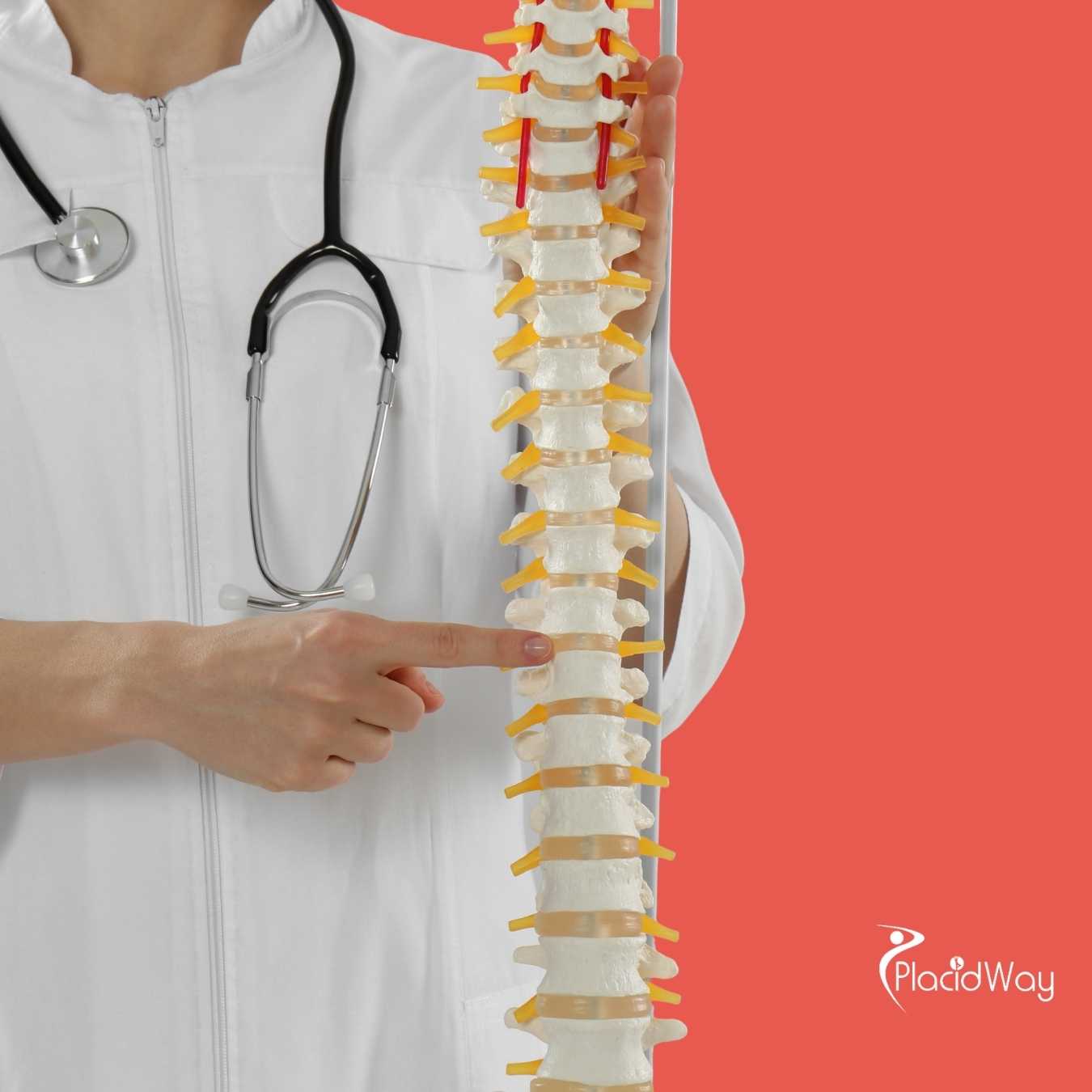Exploring Whether Stem Cells Can Extend Human Lifespan
.png)
Before diving into the intricate world of stem cells and their potential impact on our lifespan, let's address a question that many of us ponder: can these remarkable cells truly help us live longer? It's a fascinating area of science, and the simple answer is that while stem cells hold incredible promise for treating diseases and improving health as we age, definitively stating they increase overall human life expectancy is still a frontier of ongoing research, not a fully established fact.
Our bodies are constantly aging, a complex process that leads to wear and tear on our tissues and organs. This is where regenerative medicine, particularly stem cell therapy, enters the picture. The idea is to use these powerful cells to repair, replace, or regenerate damaged tissues, thereby combating the effects of aging and potentially extending our years of healthy living. We'll explore the current understanding, the exciting potential, and the challenges in harnessing stem cells for a longer, healthier life.
Do Stem Cells Directly Increase Life Expectancy?
While the direct link between stem cell treatments and a significant increase in overall human life expectancy is still under investigation, the science is clear that stem cells play a crucial role in maintaining our health as we age. They are the body's natural repair system, capable of self-renewal and differentiating into various cell types. As we get older, the number and activity of these intrinsic stem cells decline, leading to reduced regenerative capacity and increased vulnerability to disease.
The focus of much current research is on improving our "healthspan" – the period of life spent in good health, free from chronic diseases and disabilities. By targeting age-related conditions like osteoarthritis, heart disease, neurodegenerative disorders, and diabetes, stem cell therapies aim to mitigate the effects of aging, restore organ function, and enhance overall quality of life. This improvement in health and reduction in disease burden can, in turn, contribute to a longer life, even if not through a direct lifespan extension mechanism.
How Do Stem Cells Contribute to Anti-Aging?
The concept of anti-aging through stem cells revolves around their unique capabilities to restore cellular and tissue health. The aging process is characterized by cellular senescence (cells losing their ability to divide), DNA damage, mitochondrial dysfunction, and chronic inflammation. Stem cells can directly address several of these hallmarks of aging.
- Tissue Repair and Regeneration: Stem cells can replace cells lost due to damage or disease, such as in heart muscle after a heart attack or neurons affected by neurodegeneration. This regeneration helps organs function more effectively, directly improving health.
- Paracrine Effects: Beyond direct replacement, stem cells secrete a variety of growth factors, cytokines, and exosomes. These molecules have profound therapeutic effects, including reducing inflammation, modulating the immune system, promoting angiogenesis (new blood vessel formation), and encouraging the proliferation of native cells. These "signaling" effects are critical in creating a more youthful cellular environment.
- Combating Senescence: Some research suggests that stem cells may help clear out senescent cells, which accumulate with age and contribute to inflammation and tissue dysfunction. By rejuvenating the cellular landscape, stem cells could slow down the aging process at a fundamental level.
What Types of Stem Cell Therapies Are Currently Available for Age-Related Conditions?
The field of stem cell therapy is rapidly evolving, with different types of stem cells being investigated for a wide array of age-related conditions. The most commonly used and studied types include:
Mesenchymal Stem Cells (MSCs): These multipotent stromal cells can differentiate into various cell types, including bone, cartilage, muscle, and fat cells. They are highly valued for their immunomodulatory and anti-inflammatory properties. MSCs are typically sourced from:
- Adipose (fat) tissue: Easily accessible and yields a good number of cells.
- Bone marrow: A traditional source, rich in MSCs.
- Umbilical cord tissue: Neonatal source, considered "younger" cells with strong regenerative potential.
MSCs are being researched for conditions like:
- Osteoarthritis: To repair cartilage and reduce joint pain.
- Heart disease: To repair damaged heart tissue after a heart attack.
- Autoimmune diseases: To modulate the immune system.
- Neurological disorders: For their neuroprotective effects and potential to aid regeneration.
Hematopoietic Stem Cells (HSCs): Found primarily in bone marrow and umbilical cord blood, HSCs are responsible for generating all blood cell types. While primarily used for blood cancers and disorders, their immune-modulating properties are also being explored in other age-related conditions. It is important to note that while these therapies show promise, many are still in various stages of clinical trials and are not universally approved for widespread use.
Are Stem Cell Treatments for Longevity FDA Approved?
In the United States, the Food and Drug Administration (FDA) maintains a strict regulatory framework for medical products, including stem cell therapies. As of now, the FDA has approved only a limited number of stem cell-based products. These approvals are typically for:
- Hematopoietic (blood-forming) stem cell transplants: For the treatment of blood and immune system diseases like leukemia, lymphoma, and certain inherited metabolic disorders.
- Skin substitutes and corneal repair: Specific stem cell products used for severe burns or to repair the cornea of the eye.
Crucially, there are no FDA-approved stem cell treatments for general anti-aging, wrinkle reduction, or the broad aim of increasing life expectancy. Many clinics, particularly those operating outside of strict regulatory environments, may offer unproven or experimental therapies. Patients considering stem cell treatments should exercise extreme caution, verify regulatory approvals, and discuss options with qualified medical professionals. Unapproved treatments can carry significant risks without proven benefits, making it essential to understand the regulatory landscape.
What Are the Risks and Challenges of Using Stem Cells for Increasing Life Expectancy?
While the potential of stem cells is immense, their application for longevity and general health improvement comes with significant risks and challenges that must be carefully considered:
Potential Risks:
- Tumor Formation: A primary concern, especially with pluripotent stem cells (like embryonic stem cells or induced pluripotent stem cells), is their ability to form tumors (teratomas) if not properly controlled after transplantation.
- Immune Rejection: As with any transplant, the body's immune system can reject donor stem cells, leading to complications or treatment failure. Even with autologous (patient's own) cells, immune responses can occur.
- Infection: Any medical procedure carries a risk of infection, and injections or infusions of stem cells are no exception.
- Unintended Cell Differentiation: Stem cells might differentiate into unintended cell types, causing adverse effects or failing to provide the desired therapeutic benefit.
- Contamination: If cells are prepared in substandard laboratories, there's a risk of bacterial, viral, or fungal contamination.
Challenges:
- Efficacy and Safety: Many treatments offered globally are experimental and lack rigorous clinical trial data to prove their long-term efficacy and safety for longevity.
- Ethical Concerns: The use of certain types of stem cells, particularly those derived from embryos, raises ethical debates.
- Regulation and Quality Control: The lack of stringent regulation in some countries means that the quality and safety of stem cell products can vary dramatically.
- Cost: Experimental stem cell therapies can be extremely expensive, often without insurance coverage, placing a significant financial burden on patients.
Can Stem Cells Reverse Aging?
The idea of reversing aging is a captivating one, often seen in science fiction. In reality, the concept of "reversing" aging is complex. Stem cells excel at repairing and regenerating specific tissues and organs. For example, they can help rejuvenate skin, heal damaged joints, or improve cardiac function. These actions can certainly make an individual feel younger, appear more vibrant, and improve their functional capacity, thereby enhancing their 'healthspan'.
However, aging is a multifaceted biological process affecting every cell, tissue, and organ in the body, involving genetic, epigenetic, and environmental factors. While stem cells can address many of the symptoms and consequences of aging, such as tissue degeneration and chronic inflammation, they are not currently demonstrated to reset the entire biological clock or halt the fundamental mechanisms of the aging process across the entire organism. Research continues to explore their potential to tackle cellular senescence and other core aging pathways, but a complete reversal remains a significant scientific challenge.
What is the Future Outlook for Stem Cell Research in Life Extension?
The future of stem cell research for life extension and anti-aging is incredibly exciting and dynamic. Scientists are continually uncovering new insights into how stem cells function and how they can be manipulated for therapeutic gain. Several key areas are driving this progress:
- Enhanced Targeting and Delivery: Developing methods to precisely deliver stem cells to specific damaged tissues and ensure their survival and integration.
- Gene Editing: Combining stem cell therapy with gene editing technologies (like CRISPR) to correct genetic defects in cells before transplantation, potentially offering more durable and effective treatments.
- Biomaterials and Scaffolds: Using advanced biomaterials to create scaffolds that support stem cell growth and differentiation, mimicking the natural tissue environment.
- Understanding Mechanisms: Deeper understanding of the paracrine effects and immunomodulatory properties of stem cells will lead to more refined and potent therapies, potentially even cell-free treatments using exosomes.
- Clinical Trials: A growing number of rigorous clinical trials are evaluating stem cell therapies for a wider range of age-related conditions, including neurodegenerative diseases, metabolic disorders, and organ failure. Success in these trials will pave the way for approved treatments that can genuinely extend healthy lives.
While the dream of vastly extended life expectancy through stem cells is still distant, the ability to significantly improve healthspan and treat chronic age-related diseases is becoming increasingly tangible.
Where Can I Find Reputable Stem Cell Clinics for Anti-Aging Treatments Abroad?
For individuals exploring stem cell therapies for anti-aging or other health concerns, medical tourism has become a popular route, particularly in countries with less stringent regulations than the U.S. or Europe. However, it's crucial to exercise extreme caution and diligence when selecting a clinic abroad. Here's what to look for:
- Accreditation and Licensing: Check if the clinic and hospital are accredited by recognized international bodies (e.g., JCI - Joint Commission International) or local health authorities. This indicates adherence to quality and safety standards.
- Physician Qualifications: Verify the credentials, specialization, and experience of the doctors performing the procedures. They should be board-certified in their respective fields.
- Transparency in Treatment: A reputable clinic will be transparent about the type of stem cells used (e.g., autologous, allogeneic), their source, processing methods, specific protocols, and expected outcomes, including any potential risks. Avoid clinics making exaggerated claims of cures.
- Ethical Practices: Ensure the clinic follows ethical guidelines regarding stem cell research and patient care.
- Patient Testimonials and Reviews: While anecdotal, consistent positive reviews and available patient stories can provide insights into patient experience, but should not be the sole basis for decision-making.
- Regulatory Environment: Understand the regulatory landscape of the country where the clinic operates. Some countries may have lax regulations that allow for unproven treatments.
Medical tourism facilitators, like PlacidWay, specialize in connecting patients with vetted clinics and hospitals worldwide, helping navigate these complexities.
Are Stem Cell Therapies for Specific Age-Related Diseases like Alzheimer's or Parkinson's Available Through Medical Tourism?
For complex neurological age-related diseases like Alzheimer's and Parkinson's, the promise of stem cell therapies is particularly compelling because these conditions involve the degeneration of specific neural cells. While intensive research is ongoing, widely approved and definitively curative stem cell treatments for these diseases are not yet available globally.
However, clinics in some countries do offer experimental stem cell treatments for these conditions as part of their medical tourism offerings. These often involve various types of stem cells, including mesenchymal stem cells (MSCs) or neural stem cells, delivered through different routes. It's vital to understand:
- Experimental Status: Most of these treatments are considered experimental. While preliminary studies might show some positive results, robust, large-scale clinical trials (Phase 3) proving efficacy and long-term safety are often missing.
- Risk vs. Reward: Patients and their families, often desperate for solutions, must weigh the potential benefits against significant risks, including those discussed earlier (infection, rejection, tumor formation, financial burden) and the possibility of no improvement or even worsening symptoms.
- Ethical Considerations: The offering of unproven therapies for vulnerable patient populations raises serious ethical concerns. Patients should ensure they receive comprehensive information about the scientific basis, risks, benefits, and alternatives before committing to such treatments.
Choosing to pursue such treatments abroad requires meticulous investigation into the specific therapy offered, the clinic's research background, and patient outcomes.
What Should I Consider When Planning Stem Cell Treatment Abroad for Chronic Conditions?
If you're considering stem cell treatment abroad for chronic conditions or age-related diseases, careful planning is essential to ensure safety and effectiveness. Here are key considerations:
| Consideration | Details |
|---|---|
| Clinic Vetting | Research clinic accreditations, doctor qualifications, and specific treatment protocols. Ensure they align with recognized medical standards. Verify the source and type of stem cells used. |
| Treatment Safety & Efficacy | Be critical of claims. Seek scientific evidence (peer-reviewed studies) supporting the treatment. Understand potential risks, side effects, and long-term outcomes. Avoid clinics offering "guaranteed cures." |
| Legal & Ethical Compliance | Confirm that the treatment is legally permissible in the destination country and adheres to international ethical guidelines for stem cell research and therapy. |
| Travel & Logistics | Plan travel arrangements, accommodation, and local transport. Consider the need for a travel companion or medical escort, especially for patients with severe conditions. |
| Cost & Insurance | Obtain a detailed cost breakdown, including consultation, procedure, hospital stay, medications, and follow-up. Most international stem cell treatments are not covered by conventional insurance. |
| Follow-up Care | Discuss post-treatment care requirements with your local doctor and the clinic abroad. Ensure continuity of care, as follow-up can be crucial for monitoring progress and managing any complications. |
Thorough due diligence and consultation with trusted medical advisors are paramount before making any decisions about stem cell treatment abroad.
Can Lifestyle Choices Impact the Effectiveness of Stem Cell Therapies for Longevity?
While stem cell therapies hold great promise, their effectiveness, particularly in the context of longevity and improving healthspan, is not solely dependent on the treatment itself. An individual's lifestyle plays a crucial role in maximizing the benefits and sustaining the results of such advanced therapies. Imagine trying to repair a house while its foundations are continuously undermined; similarly, introducing new, healthy cells into an unhealthy environment might yield suboptimal results.
Here's how lifestyle choices can positively influence the outcome of stem cell therapies:
- Nutrition: A balanced diet rich in antioxidants, vitamins, and minerals supports cellular health and reduces systemic inflammation, creating a more favorable environment for stem cells to thrive and function. Conversely, poor nutrition can hinder cell repair and regeneration.
- Physical Activity: Regular exercise improves blood circulation, oxygen delivery to tissues, and reduces oxidative stress, all of which are beneficial for the survival and integration of stem cells. It also promotes the natural mobilization of endogenous stem cells.
- Sleep Quality: Adequate and restorative sleep is essential for the body's natural repair processes. During sleep, growth hormones are released, and cellular repair mechanisms are activated, supporting the effects of stem cell treatment.
- Stress Management: Chronic stress can lead to increased inflammation and cortisol levels, which can negatively impact cellular health and regeneration. Stress reduction techniques can help maintain a more balanced physiological state, fostering a better environment for therapeutic cells.
- Avoiding Harmful Habits: Smoking, excessive alcohol consumption, and exposure to environmental toxins can damage cells and impede regenerative processes. Avoiding these habits is critical for preserving cellular health and maximizing the benefits of any stem cell therapy.
Ultimately, stem cell therapies are powerful tools, but they work best when supported by a holistic approach to health that includes positive lifestyle choices. These choices are fundamental to not only potentially increasing life expectancy but also significantly enhancing the quality of those years.
Ready to explore advanced healthcare solutions, including innovative therapies and medical tourism opportunities, to enhance your health and wellbeing? PlacidWay connects you with a global network of trusted clinics and specialists offering a wide range of services. Visit PlacidWay today to discover your options and take the next step towards a healthier future.


.png)









Share this listing